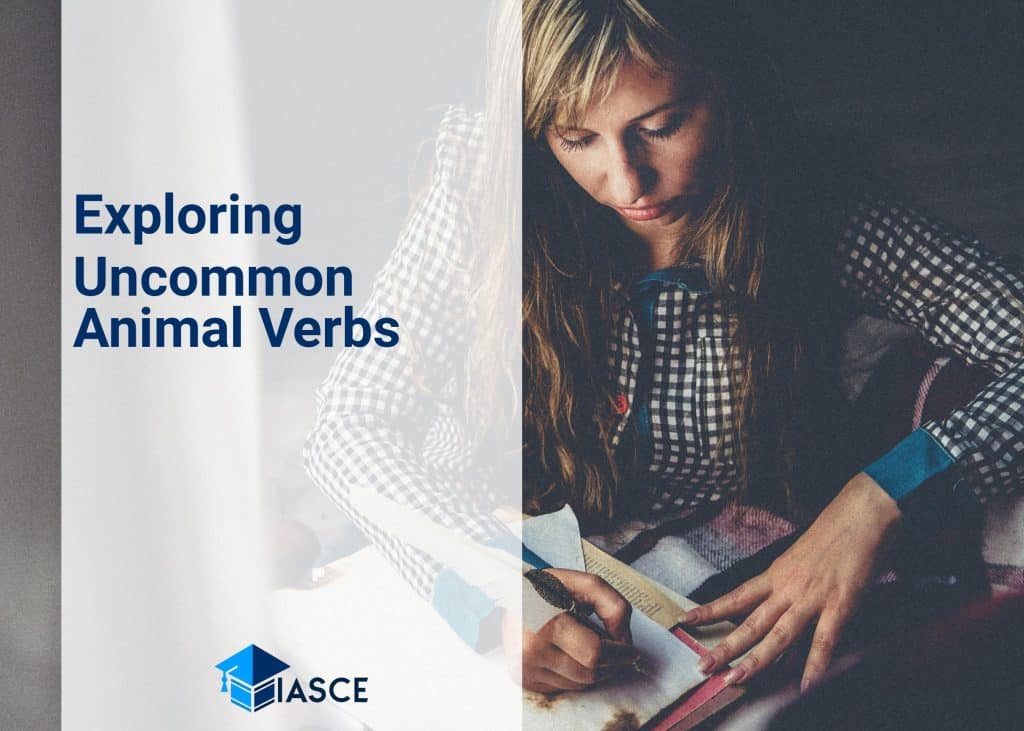I’ve always been captivated by the English language, especially its rich and varied vocabulary. When it comes to animals, we often resort to common verbs like ‘walk’, ‘run’ or ‘fly’. But did you know that there are specific verbs for different animal actions?
It’s a delightful discovery, isn’t it? The English language is full of these unique gems. For instance, a bear doesn’t just walk—it lumbers. A horse doesn’t only run—it gallops. In this article, I’m going to take you on an exploratory journey through some of the most uncommon animal-related verbs.
So prepare yourself to dive deep into the fascinating world of English language insights: Uncommon Verbs for Animals. Let’s embark on this linguistic adventure together, exploring how our language has evolved to be as diverse and vibrant as the animal kingdom itself!
Discovering Uncommon Verbs Linked to Animals
I’ve always been fascinated by the richness and diversity of the English language, especially when it comes to verbs associated with animals. It’s not just about ‘barking dogs’ or ‘meowing cats’, there’s an entire world of uncommon verbs out there that are linked to our furry, feathered, and scaled friends. Let’s delve into some of these intriguing words together.
Did you know that a bee doesn’t simply fly? In English, we say that bees buzz. Similarly, horses don’t just run – they gallop or canter. Each verb is specifically tailored to the animal’s unique way of moving.
Let’s take another example: pigs. They do more than simply eat; pigs root, using their noses to dig in search for food. Ducks don’t merely swim; instead, they paddle through water with their webbed feet.
Here are few more examples:
- Frogs croak
- Crows caw
- Pigeons coo
The list goes on!
These distinctive verbs not only add flavor to our conversations but also paint vivid pictures in our minds about animals’ behaviors and movements. I think it’s amazing how such specific terms have evolved over time within the English language.
Notably, many of these uncommon animal-related verbs are onomatopoeic – meaning they mimic the actual sound made by the creature. Think about it: doesn’t “buzz” actually sound like a bee flying around your ear?
Digging deeper into these underused parts of language can be both fun and educational. So next time you’re writing or speaking about animals, why not try swapping out those generic action words for something a bit more interesting? You’ll find it adds an extra layer of depth and color to your conversation or story!
Exploring Animal-Inspired English Verbs You Didn’t Know
Ever wonder how many words we owe to the animal kingdom? Let’s dive into the fascinating world of English language, where animals inspire not just nouns and adjectives, but verbs too. Uncommon and intriguing, these terms can add a splash of color to everyday conversations.
Take “badger” for example. Beyond describing a black-and-white burrowing mammal, it’s also an uncommon verb! To badger someone means to pester or annoy them relentlessly. Similarly, “parrot” as a verb signifies mimicking someone mindlessly – often repeating their words without understanding.
Then there’s “hog”. You might picture a large pig when hearing this word. However, in verb form, it implies monopolizing something unfairly. If you’ve ever been accused of hogging the remote control during movie nights at home, you now know which creature inspired that!
And have you heard about “fox”? It doesn’t simply refer to a cunning woodland creature with bushy tail. As a verb, foxing means baffling or deceiving someone – reminiscent of many folklore tales featuring shrewd foxes.
Here are some examples:
| Animal Verb | Meaning | Example |
|---|---|---|
| Badger | To pester or annoy persistently | Stop badgering me about your game! |
| Parrot | To mimic mindlessly; repeat words without understanding | He was parroting his professor’s opinions without considering them critically |
| Hog | To monopolize unfairly | Don’t hog all the popcorn! We’re supposed to share |
| Fox | To baffle or deceive | The mystery really foxed me until I read the final chapter |
So next time you come across an animal noun in English language — don’t be surprised if there’s more than meets the eye! There could be an unusual verb lurking behind it waiting to enrich your vocabulary even further.
Closing Thoughts on Rare Animal Related Verbs
I’ve been enthralled by the journey we’ve taken together, exploring rare and uncommon verbs related to animals. It’s been a fascinating dive into the English language, unearthing unique verbal expressions that somehow manage to capture the essence of our animal friends.
Isn’t it intriguing how these verbs have evolved? They take us beyond ordinary descriptions, adding depth and nuance to our communication. For instance, ‘frogs croak’, ‘horses neigh’, or even ‘cows moo’. These aren’t just sounds; they’re distinct modes of expression for each species!
When I consider their origins, it reminds me of how interconnected everything is. From culture to biology, all aspects of life seep into our language, shaping its development over time. It’s not just about grammatical correctness—it’s also about capturing life in all its vibrant diversity.
Here are some examples:
| Animal | Verb |
|---|---|
| Frog | Croak |
| Horse | Neigh |
| Cow | Moo |
These peculiarities in language don’t make things complicated—they enrich them! I encourage you to embrace this complexity as part of the beauty of English. After all, isn’t it more fun when snakes don’t merely “make noise,” but rather “hiss”?
So keep exploring! Search out those quirky words and phrases that bring color and life into your conversations. Remember: Language isn’t static; it evolves with us. So let’s keep pushing those boundaries in search for new insights.
I hope you enjoyed this exploration as much as I did. Here’s looking forward to discovering more linguistic gems together in future posts.

